How a Farmer From Madhya Pradesh Is Growing 110 Varieties of Rice in Just 2 Acres of Land
Babulal has also grown 100 more varieties of pulses, grains and vegetables.
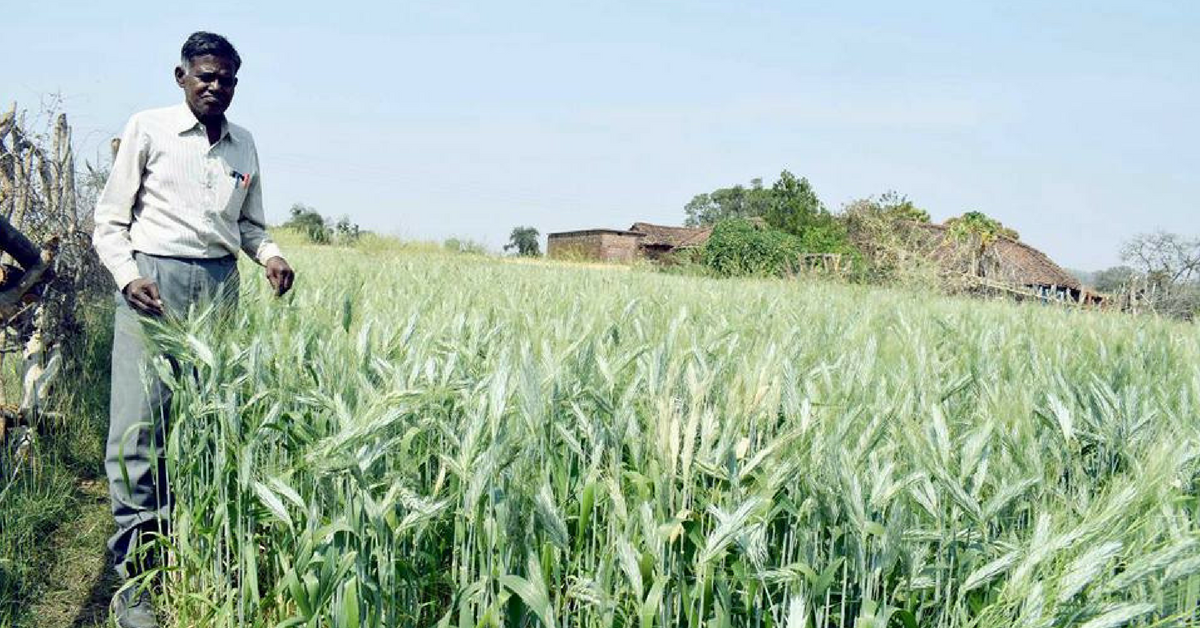
About 30 km from Maihar, lies Pithaurabad village in the Unchehara block of Satna district in Madhya Pradesh. What is unusual about this village is the 2-acre land, where you will find 110 varieties of rice crop. The farm belongs to 72- year- old Babulal Dahiya, who has been collecting these varieties since 2005. In the rest of the 6 acres, Babulal has also grown 100 more varieties of pulses, grains and vegetables.
Babulal was born and brought up in a farmer’s family. Though he had been sent to study far away from his village, he would come back in the holidays and help his father with his farm.
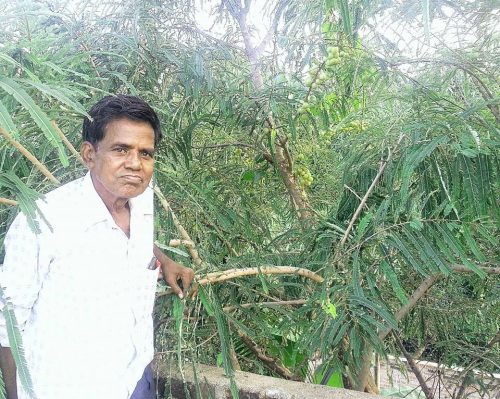
“In those days, kids got involved in their father’s profession very easily. Being from a farmer’s family, I learnt everything about farming. We would have a 28-day holiday from Dussehra to Diwali. All the kids would come home and help the family with harvesting the yield,” says Babulal.
Babulal also had an unusual knack for Bagheli (a local language in Madhya Pradesh) poetry and storytelling right from childhood. So, even after finishing his studies and working as a postmaster in his village, he would keep participating in poetry meets and performances. Soon he started writing columns for renowned publications like Navbharat Times.
Babulal became a household name soon in the Bagheli speaking tribal community and joined the Madhya Pradesh Adiwasi Lok Kala Academy. The academy requested him to document Bagheli folk literature -songs, proverbs, folktales, legends, myths and so on, to retain their culture. Babulal, who was already passionate about Bagheli literature, then authored five books on Bagheli oral folk literature and published two poetic collections.
This is when he came across many songs, sayings and folktales where a variety of rice was mentioned which he had never heard about.
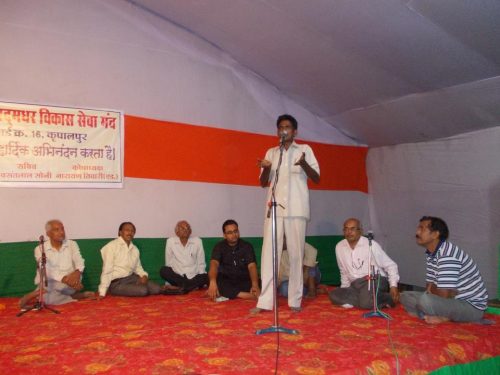
“There is a saying in Bagheli ‘Dhaan bove Kargi, suvar khaye na samdhi’. (If you sow, the Kargi rice variety, it is neither eaten by wild boars nor by the family of the son-in-law). This variety has small protective spikes and so the boars can’t eat them. Then there is this mention of ‘kalawati’ variety which is black in colour and takes 145 days to get ready to be harvested and it has amazing medicinal properties” he explains.
Babulal would often think about how one can save folk culture by preserving the songs and folktales, but what about the diverse variety of grains and crops that were once a part of the culture? Thus, in 2005, Babulal started his mission of saving the rice varieties that he had heard about in folktales and songs.
He started visiting each and every farmer across the country, who had seeds of the unique varieties of rice and sowed them in the 2-acre space of his 8-acre land.
So far he has grown 110 varieties of traditional rice. He has studied their qualities deeply. Every year he sows these farm-saved seeds in his field and studies them, and grows traditional crop varieties without using any fertilizers.
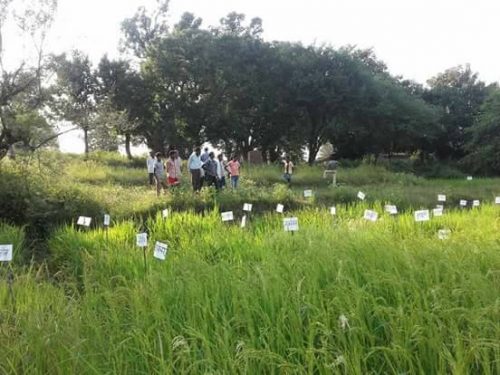
Along with that, he is also growing rice and coarse grains like kodo, kutki and jowar with farmers from 30 villages of the Unchehara block.
“At one time, our country had more than 1 lakh variety of traditional rice. Now that number has drastically reduced. Out of these, I have collected 110 varieties, which I am constantly protecting and preserving,” says Babulal.
You may also like – This Lecturer Quit His Job to Become a ‘Plant Doctor’ & Help Farmers in Distress
Talking about the qualities of traditional rice varieties, Babulal says each one has a unique taste, unlike the hybrid ones, which is why the farmers get a good price for these. Sufficient yield is obtained for traditional rice varieties by simply using cow dung as manure. In contrast, hybrid and dwarf varieties require chemical fertilizers. This increases inputs and reduces the fertility of the land or soil.
Moreover, there are different rice varieties for different purposes. Like Bajranga, which is sown by farmers for a long time, as it takes time to get harvested here are other rice varieties like Kamalshree that are sown for guests and Nevari variety is sown for selling as it provides good returns.
He also informed that traditional rice varieties don’t require regular weeding.
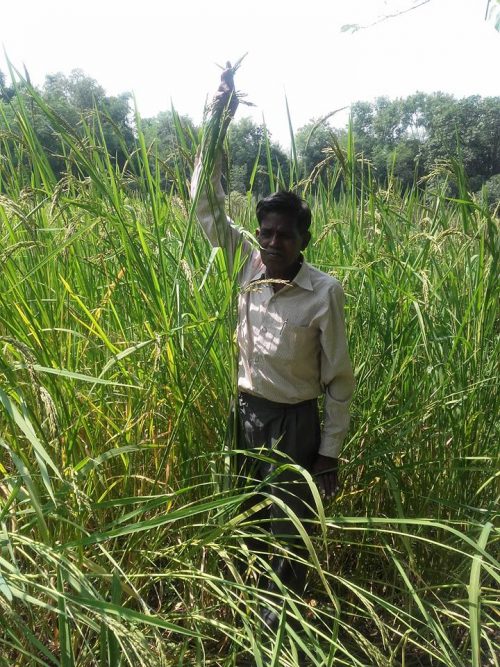
Doing it once is enough because weeds don’t ‘strangle’ these plants since they grow taller. Pests are controlled by spiders, honeybees, ants and insect friends. Earthworms too help by turning and softening the soil throughout the day, which helps the plant to grow.
Not only this, but traditional varieties have the strength to adapt to the local environment. For instance, the traditional rice varieties constantly competing with the dwarf varieties and growing in this land for millennia -, have increased the length of their stalk, which helps store more water. Later after the spikes have developed, dew is sufficient to ripen the rice. Imported dwarf varieties don’t have that quality.
Babulal has also formed a Sarjana Samajik Sanskritik and Sahityik Manch, which has served as a medium for documenting and disseminating information on traditional seed varieties.
Inspired by Babulal’s work, the Biodiversity Board has started a Beej Yatra to collect indigenous varieties of vegetables and medicinal plants. So far, they have collected over 1600 varieties from 24 districts.
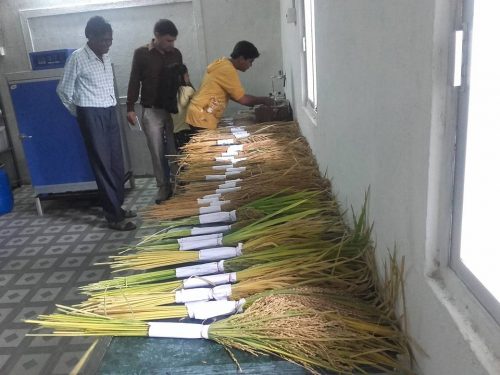
These days he is in Bhopal, where various grain varieties are grown in pots as a part of the awareness campaign. His collection has been getting deposited in a seed bank developed with the help of the Madhya Pradesh State Biodiversity Board.
You may also like – Date Farming Changed This Vidarbha Farmer’s Life & He Can Help You Set up a Farm Too
He also runs a biodiversity awareness campaign with school children and travels across the country participating in various workshops to spread the message of conservation of seed varieties. Babulal has been honoured on various platforms for his work.
“Recently I visited Kerala, where we were served kodo rice. My mother would serve kodo rice along with milk to us when we were kids. So, it was very nostaligic . It is also said in the folktales that in ancient times, kings would ask farmers to grow this variety of rice and store them for droughts as it can be stored for years. Also, even a little quantity is very filling. But due to its thickness, it was not liked much and farmers stopped growing it. It’s very important to preserve these varieties as they prove to be helpful in adverse situations,” says Babulal.
You can contact Babulal Dahiya at [email protected] or call him on 9981162564.
Like this story? Or have something to share? Write to us: [email protected], or connect with us on Facebook and Twitter.
NEW: Click here to get positive news on WhatsApp!
This story made me
- 97
- 121
- 89
- 167
Tell Us More
We bring stories straight from the heart of India, to inspire millions and create a wave of impact. Our positive movement is growing bigger everyday, and we would love for you to join it.
Please contribute whatever you can, every little penny helps our team in bringing you more stories that support dreams and spread hope.



















